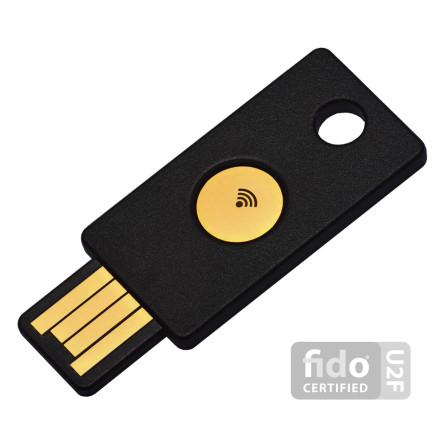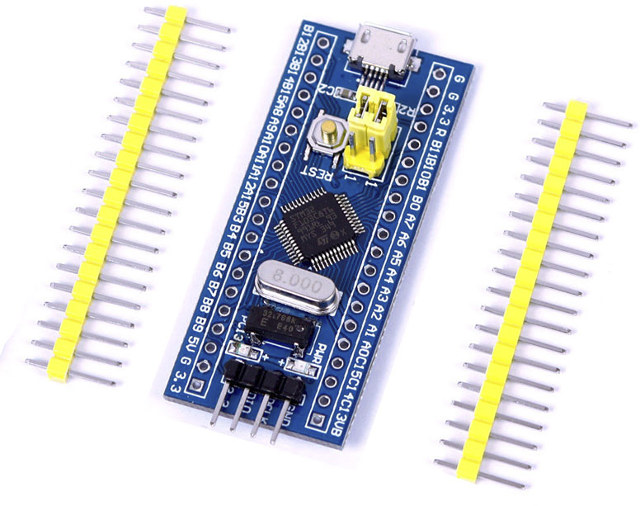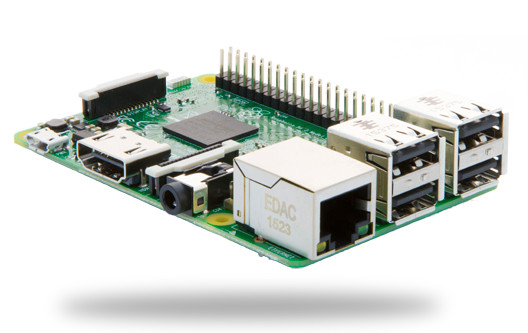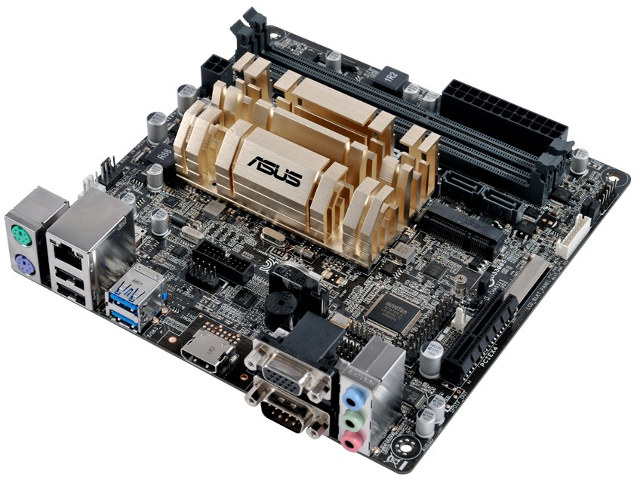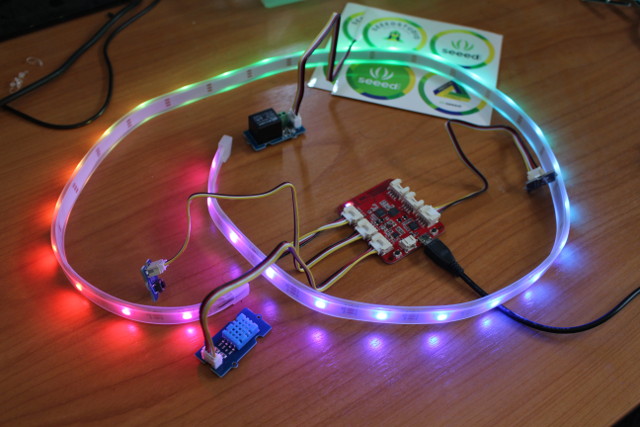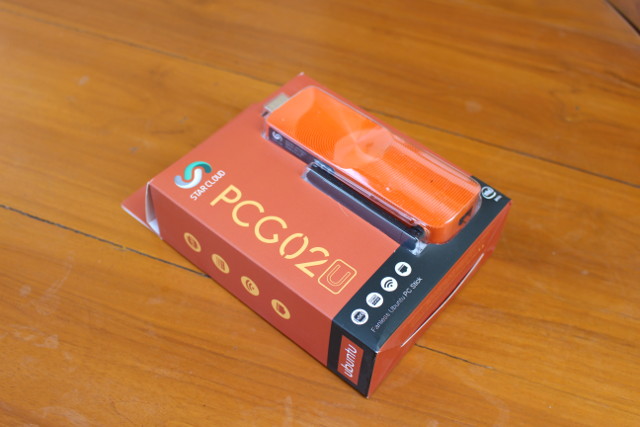YubiKey NEO is a dongle that supports both contact (USB) and contactless (NFC, MIFARE) communications to secure your Windows, Mac OS or Linux computers and/or Android/iOS smartphones using two factor authentication. It supports one-time password (OTP), smart card functionality (OpenGPG, PIV…), as well as FIDO Alliance’s Universal 2nd Factor (U2F) protocol. The key can be used in a variety of applications, such as logging into your computer, accessing gmail, github, dropbox, and other accounts, and disk encryption. It also works with password manager such as Lastpass or Dashlane. You’ll need to both enter your password, and connect the Yubikey to your computer to be able to login, and for NFC enabled smartphones, you’d need to tap the key on the device. In case you lose your key, online services usually have recovery mechanism in places, and some support registration of up multiple YubiKeys. The latter can probably be used for […]
“BluePill” is a $2 Arduino Compatible Development Board Based on STMicro STM32 MCU
I’m amazed that if your budget for a board was just $5 for one MCU board, you now have so many options for your electronics projects: ESP8266 boards, a few STM8 boards, One Dollar Board project, and many more… Other options are “BluePill” or “RedPill” boards based on STM32 or GD32 32-bit ARM Cortex M3 micro-controllers that go for about $2 shipped, and can be programmed with the Arduino IDE thanks to STM32Duino project. BluePill board specifications: MCU – STMicro STM32F103C8T6 ARM Cortex-M3 MCU @ 72 MHz with 64KB flash memory, 20KB SRAM. USB – 1x micro USB port for power and programming Debugging – 4x pin SWD header or micro USB port Expansion – 2x 20-pin with power signals, I2C, SPI, GPIOs, ADC inputs, etc… Misc – Reset button, two jumpers (for boot mode), power and user LEDs. Power – 5V via USB, 2.0-3.6V power via 3.3V pin on […]
$44.90 BeagleBone Green Wireless Board Adds 802.11n WiFi & Bluetooth 4.1 LE and More USB Ports
After BeagleBone Air, there’s now another BeagleBone Black derived board with WiFi and Bluetooth, as BeagleBone Green gets a wireless version with WiFi 802.11n, Bluetooth 4.1 LE, and four USB ports. BeagleBone Green Wireless Specifications The Ethernet port is also gone, but most of the other specifications remain the same as seen from the comparison table below. BeagleBone Black BeagleBone Green BeagleBone Green Wireless SoC Texas Instruments Sitara AM3358 ARM Cortex-A8 processor @ 1GHz with NEON, PowerVR SGX530 GPU, PRU… System Memory 512MB DDR3 RAM Storage 4GB eMMC flash + micro SD slot USB 1x USB client, 1x USB 2.0 host 1 USB client, 4x USB 2.0 host ports Network Connectivity 10/100M Ethernet Wi-Fi 802.11 b/g/n & Bluetooth 4.1 LE Video Output HDMI N/A Expansion Headers 2×46 pin headers 2×46-pin headers and 2x Grove connectors Debugging 6-pin serial header and unpopulated 20-pin JTAG header Dimensions 86.3 x 53.4 cm Price […]
Preliminary Open Source Bootloader for Raspberry Pi Boards Released
Raspberry Pi boards require a closed-source binary to boot. I understand it this is handled by VideoCore IV GPU, and so far the Raspberry Pi foundation are not release source code for the bootloader, possibly due to legal reason (e.g. NDA to Broadcom). But I noticed people chatting about an open source bootloader for Raspberry Pi on sunxi-linux IRC channel. The bootloaded called rpi-open-firmware has been developed by Kristina Brooks (christinaa), who previously did some work on the VideoCore IV GPU, as you can see on her blog and github account. Kristina describe the project as follows: This is a small firmware for RPi VPU (VideoCore4) versions 1/2/3 that is capable of initializing VPU PLL (PLLC), UART, SDRAM and ARM itself. It’s intended to be used instead of stock bootcode.bin on RPi’s SD card. You need to have UART to see anything meaningful as far as output goes. This has […]
Jide and Asus Optimized Remix OS 2.0 on a Specific Intel Celeron 3150 mini-ITX Board
Remix OS 2.0 Android port with optimization for desktop use is great on ARM hardware, as in most cases, Linux distributions or Windows 10 don’t really run perfectly on such hardware. Remix OS for x86 could also be an option for your older computer that may feel sluggish with recent desktop operating systems, but would people really run it on newer and faster x86 hardware as their main OS? Jide and Asus actually think there’s a market here, and both companies collaborated to optimize Remix OS 2.0 for Asus N3150I-C mini-ITX motherboard powered by Intel Celeron N3150 processor. For reference, I’ll list the main specifications of Asus N3150C-I motherboard: SoC – Intel Celeron N3150 “Braswell” quad core processor @ up to 2.08 GHz with Intel HD Graphics Gen8 @ up to 640 MHz – 6W TDP System Memory – 2x U-DIMM up to 8GB DDR3 1600/1066 MHz Non-ECC dual channel […]
Linux 4.6 Release – Main Changes, ARM and MIPS Architectures
Linus Torvalds released Linux Kernel 4.6 earlier today: It’s just as well I didn’t cut the rc cycle short, since the last week ended up getting a few more fixes than expected, but nothing in there feels all that odd or out of line. So 4.6 is out there at the normal schedule, and that obviously also means that I’ll start doing merge window pull requests for 4.7 starting tomorrow. Since rc7, there’s been small noise all over, with driver fixes being the bulk of it, but there is minor noise all over (perf tooling, networking, filesystems, documentation, some small arch fixes..) The appended shortlog will give you a feel for what’s been going on during the last week. The 4.6 kernel on the whole was a fairly big release – more commits than we’ve had in a while. But it all felt fairly calm despite that. Linux 4.5 added […]
Getting Started with Wio Link Starter Kit, Visual Programming Android App, and IFTTT
Wio Link is a board based on ESP8266 WiSoC that is supposed to be easy to set up thanks to Grove modules – no breadboard and mesh or wires – and, as I first understood it, to program thanks to a drag-and-drop mobile app that does not require any actual programming. More advanced users can also use a RESTful API in Python, JavaScript, Node.js, PHP, Objective-C or Java. I’ve been sent a $49 Wio Link Starter Kit including the board, a USB cable, and six Grove modules to evaluate the kit. I’ll start by having a look a the kit, before experimenting with the Wio Link Android app. Wio Link Starter Kit Unboxing The kit is sent in a red plastic case. Wio Link board is lodged in the top cover, and other accessories are placed in bags in the main part of the case. Let’s check the board first. […]
Star Cloud PCG02U Ubuntu TV Stick Unboxing and Teardown
Star Cloud PCG02U is one of the rare device selling pre-loaded with Ubuntu 14.04, and MeLE, who owns Start Cloud brand, sent me one sample for review. While many Android & Windows devices can be “hacked” to run Linux distributions such as Ubuntu, Star Cloud PCG02U is the first device that I’ve ever received that’s actually shipped with Ubuntu 14.04. So it will be very interesting to find out how it performs, but today, I’ll check the device and its accessories, as well as the hardware design. Star Cloud PCG02 Unboxing The TV stick ships in a Ubuntu orange retail packaging with Star Cloud branding, and mention of Ubuntu and Intel. I had already published the specifications in my first post, a confirmation on the package is always good. The TV stick ships with a 5V/2A power adapter and multi-country plug adapters, a female to female HDMI adapter, a Quick […]


